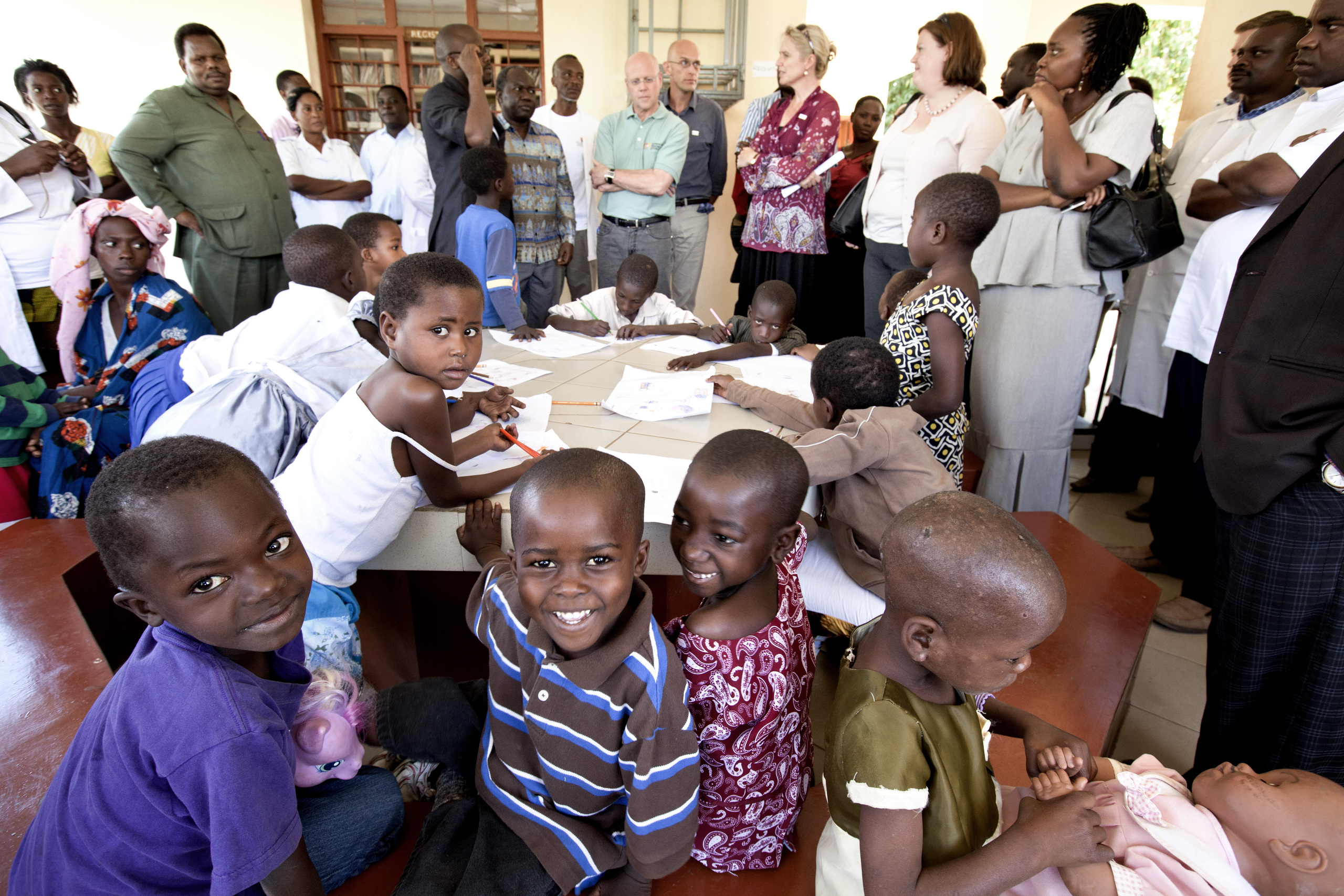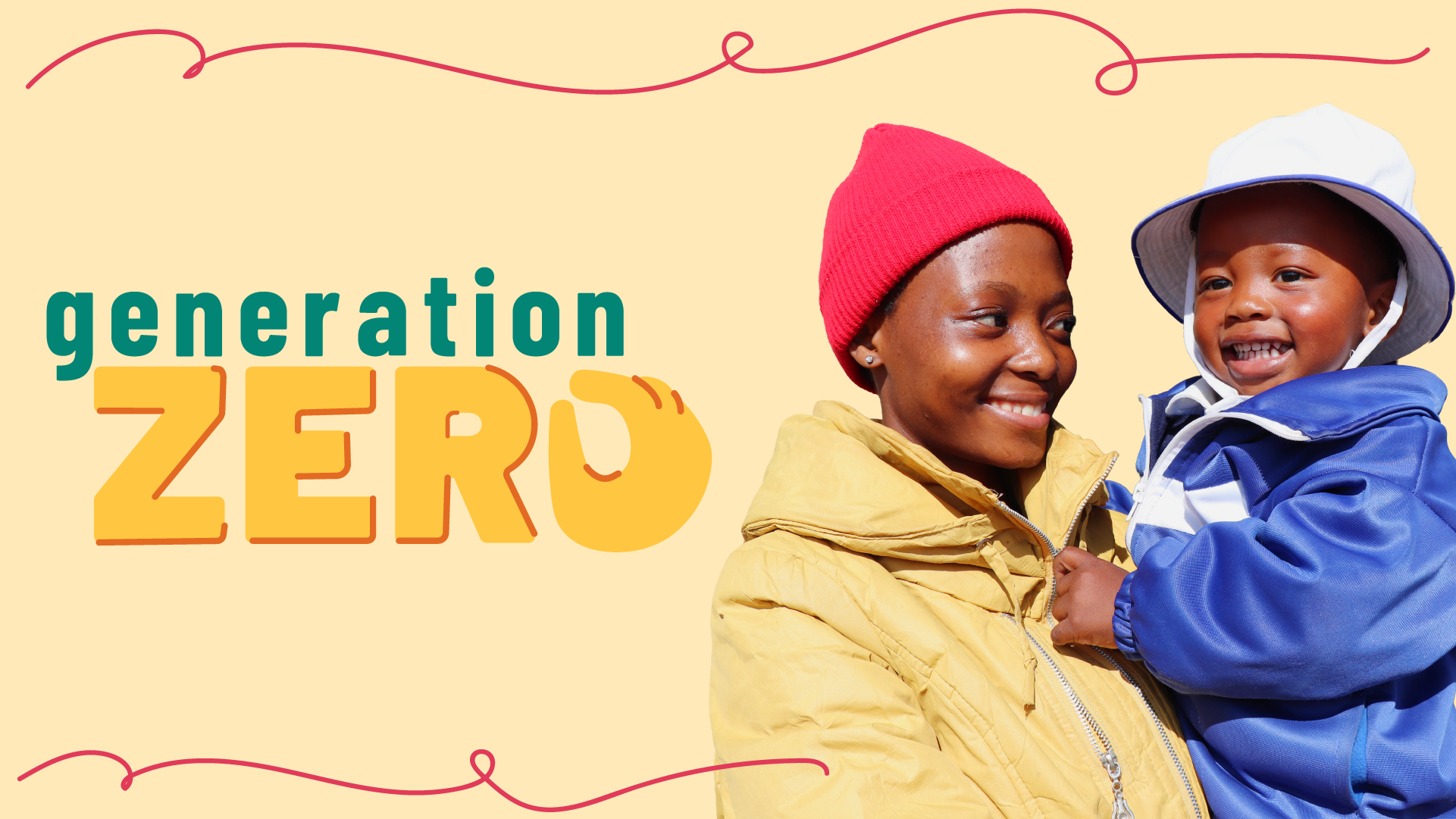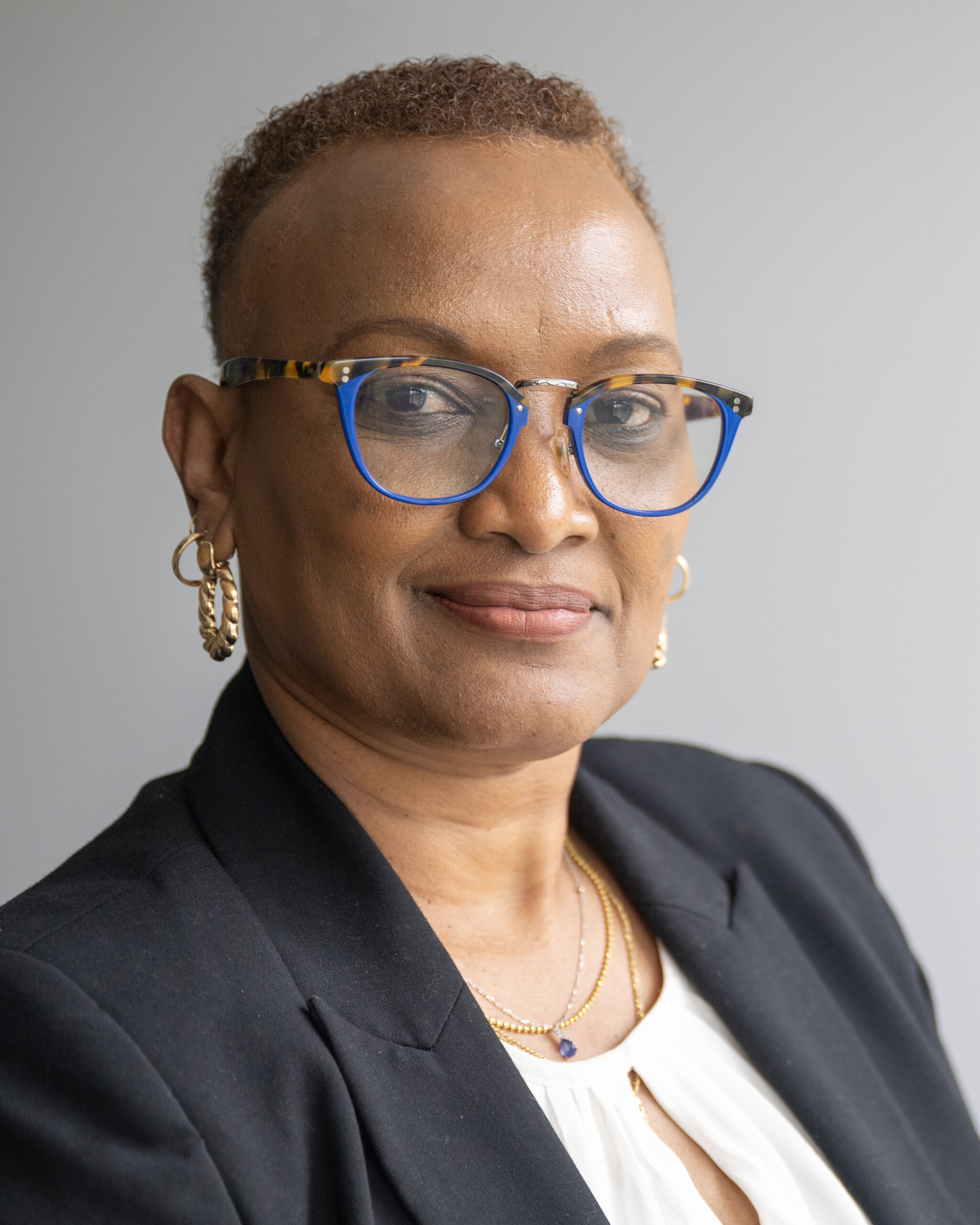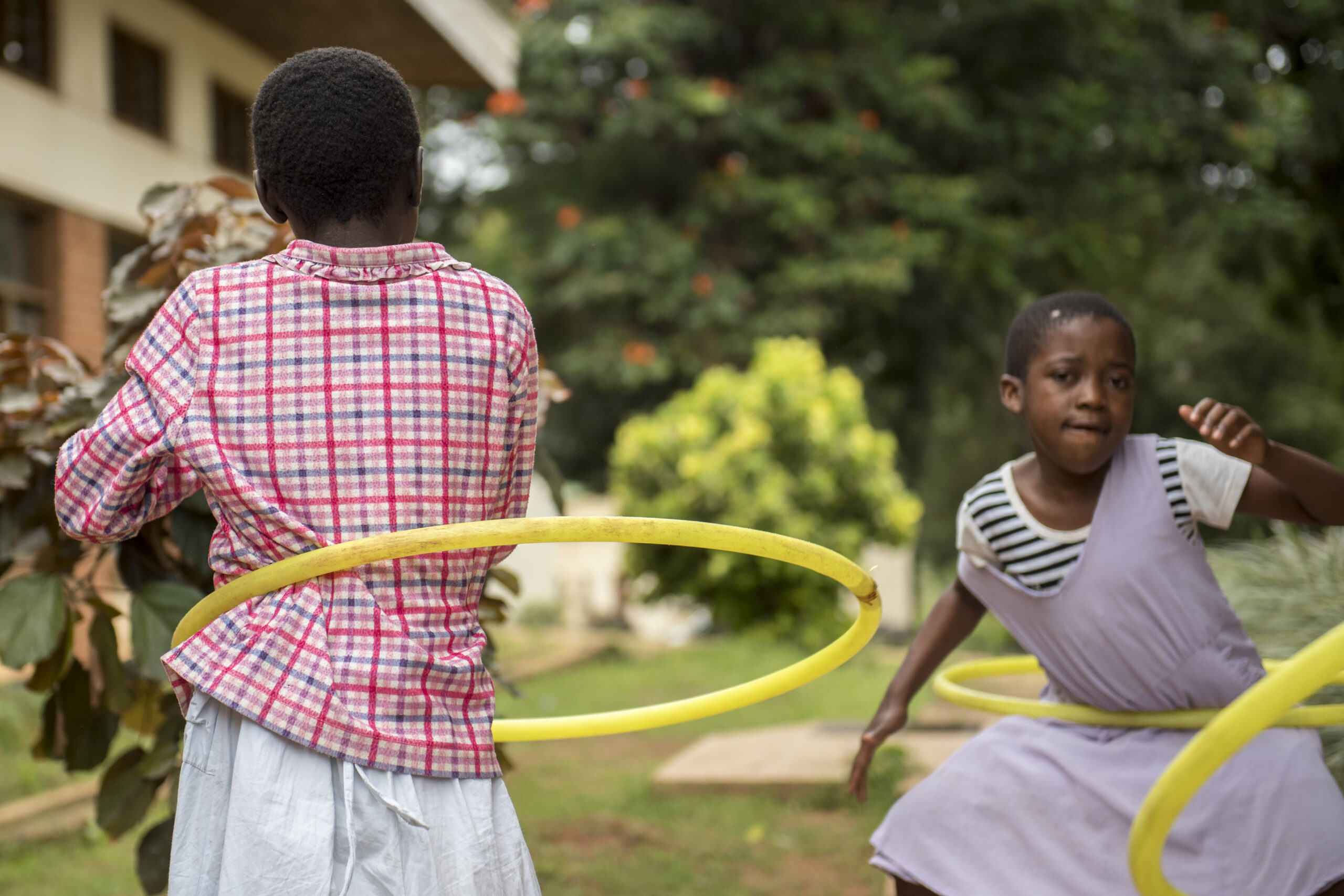The Elizabeth Glaser Pediatric AIDS Foundation (EGPAF) celebrates a culture of partnership. In Tanzania, EGPAF works hand-in-hand with in-country partners like Ariel Glaser Pediatric AIDS Healthcare Initiative (AGPAHI) to ensure that families, health care workers, and communities have the tools to plan, implement, and sustain HIV programs so that all families are reached with services.
This blog is part of a series on a recent visit to Tanzania by Chip Lyons, EGPAF’s president and CEO. Follow @Chip_Lyons
On July 3, I was in the small town of Shinyanga, Tanzania, a farming community 100 miles south of Lake Victoria. I was joined by Jeroen Van’t Pad Bosch, M.D., the Tanzania country director for EGPAF, and Laurean Bwanakunu, AGPAHI’s executive director to witness AGPAHI‘s outstanding work.
We toured the HIV care and treatment center at the Shinyanga Regional Hospital that EGPAF helped launch in 2005. Thanks to funding from the U.S. Centers for Disease Control and Prevention (CDC), EGPAF supported the building’s construction and then transitioned the facility to AGPAHI in 2011.
Dr. Van’t Pad Bosch and I were struck by how well the center welcomes families coping with an array of health concerns. Outside the center, children climb on playground equipment. Inside, skilled health workers treat their clients with cheerful optimism as they test for HIV, the first step in ensuring HIV-positive mothers don’t pass the virus on to their children.
But that’s not all these health workers do. They deliver babies, provide prenatal and postnatal care, test and treat for cervical cancer, diagnose tuberculosis, provide counseling, and enroll children living with HIV into a care and treatment program. In short, they offer comprehensive health care so that families can address many of their health needs in one place. This enhances the ability of health workers to test women for HIV and successfully administer the cascade of care required to prevent mothers from transmitting HIV to their children. It also greatly assists with follow-up and treatment of family members living with HIV—especially young mothers.
AGPAHI is carrying out our legacy with seamless efficiency and measurable success. As many as 250 people are served by the clinic each day. Ten thousand clients have received HIV care since AGPAHI took ownership of this project, and more than 5,500 men, women, and children in the surrounding community are currently enrolled in antiretroviral therapy (ART).
Around the world, EGPAF supports frontline health workers at more than 7,000 sites in 14 countries, working with ministries of health, nongovernmental organizations, and in-country partners, and affiliates like AGPAHI.
In our battle against HIV, we have seen time and again that the virus cannot be treated in isolation. Through our work to strengthen health systems and integrate family health services, we aren’t only fighting AIDS, we are changing the way the world fights AIDS. We listen. We share. We collaborate. We treat. We build local capacity.
That’s working smart.
A culture of partnership is an essential piece of EGPAF’s success and is a crucial component of building sustainable HIV programs. In 2011, with support from CDC, EGPAF developed an innovative affiliation model and launched three independent, national organizations in Côte d’Ivoire, Mozambique, and Tanzania. Strengthening national organizations through affiliation is just one component of EGPAF’s commitment to advancing country ownership to eliminate pediatric AIDS.
*The PMTCT program at Shinyanga Regional Hosptal is supported by the LIFE award from the U.S. Agency for International Development (USAID). AGPAHI is a sub-recipient of the award through EGPAF.




